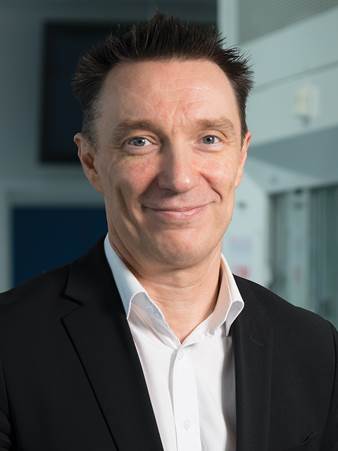 Andrew Cooper, University of Liverpool, United Kingdom
Andrew Cooper, University of Liverpool, United Kingdom
Dr. Andrew Cooper is a Nottingham graduate (1991) and obtained his Ph.D. there in 1994. After his Ph.D., He held an 1851 Fellowship and a Royal Society NATO Fellowship at the University of North Carolina at Chapel Hill, USA, and then a Ramsay Memorial Research Fellowship at the University of Cambridge.
In 1999, He was appointed as a Royal Society University Research Fellowship in Liverpool. In 2007, he was the founding Director of the Centre for Materials Discovery—the forerunner of the MIF—which cemented a long-term strategic collaboration between Unilever and the University of Liverpool. He was Head of Chemistry and then the first Head of the School of Physical Sciences in the period 2007-2012, during which time he served on the University Council.
In 2017, he co-founded a spin-out company, Porous Liquid Technologies, with collaborators at Queens University Belfast, based on an entirely new class of material, porous liquids, invented in the UK as part of an EPSRC-funded project (Nature, 2015, 527, 216).
He led the bid to establish the Materials Innovation Factory (MIF) via the UK Research Partnerships Infrastructure Fund and he is its first Academic Director. He is also the Director of the £10 M Leverhulme Centre for Functional Materials Design. His main research interests are organic materials, supramolecular chemistry, and materials for energy production and molecular separation. This is underpinned by a strong technical interest in high-throughput methods and robotics.
A unifying theme in his research is the close fusion of computational prediction and experiment to discover new materials with step-change properties (Nature, 2011, 474, 367; Nature, 2017, 543, 657). This has involved close collaboration with Graeme Day, Professor of Chemical Modelling at the University of Southampton.
He was elected to the Royal Society in 2015. He has been awarded the Macro Group Young Researchers Award (2002), the RSC Award in Environmentally Friendly Polymers (2005), the McBain Medal (2007), the Corday-Morgan Prize (2009), the Macro Group Award (2010), a Royal Society Wolfson Research Merit Award, the Tilden Prize (2014), and the American Chemical Society Doolittle Award (2014). He was also the 2015 MIT-Georgia Pacific Lecturer in Organic Chemistry.
In both 2011 and 2014, he was named in a Thomson Reuters list as one of the Top 100 materials scientists of the last decade. He was also named in the more recent 2017 Clarivate Highly Cited list in the field of chemistry. He was awarded an ERC Advanced Investigators grant in 2012 (RobOT). In 2015, he was appointed as a Consultant Professor in Huazhong University of Science & Technology, China. He was also appointed as an Honorary Professor at East China University of Science and Technology, Shanghai in 2017.
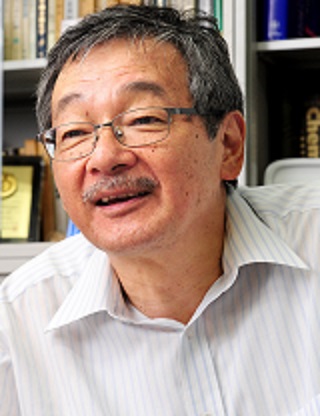 Kazunari Domen, University of Tokyo, Japan
Kazunari Domen, University of Tokyo, Japan
Dr. Kazunari Domen received his B.S. (1976), M.S. (1979), and Ph.D. (1982) with honors in chemistry from the University of Tokyo. He joined Chemical Resources Laboratory, Tokyo Institute of Technology in 1982 as Assistant Professor and was subsequently promoted to Associate Professor in 1990 and Professor in 1996 before moving to the University of Tokyo as Professor in 2004. He has held a cross appointment with Shinshu University as Special Contract Professor since 2017 and has been University Professor of the University of Tokyo since 2019. His research interests include heterogeneous catalysis and materials chemistry, with particular focus on surface chemical reaction dynamics, photocatalysis, solid acid catalysis, and mesoporous materials Recently, his effort is focused on development of photocatalysts for water splitting and construction of practical solar hydrogen production system. He has published over 900 papers in peer-reviewed journals with more than 90,000 citations and has a H-index of 141.
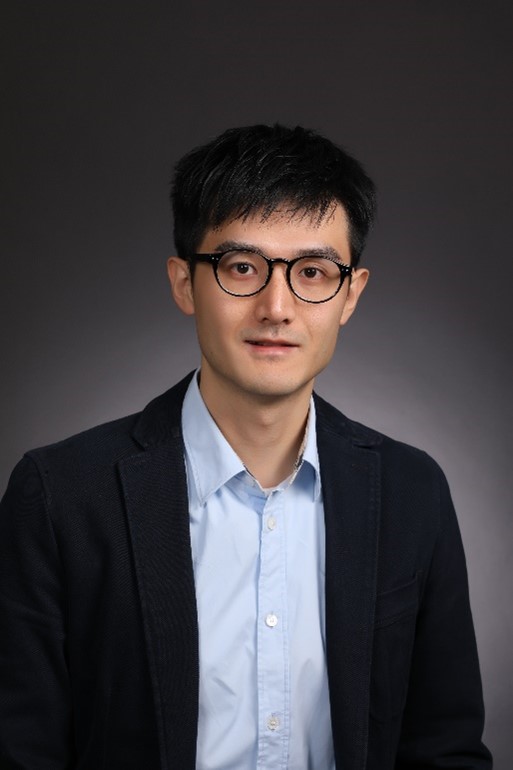 Haohong Duan, Tsinghua University, China
Haohong Duan, Tsinghua University, China
Dr. Haohong Duan is an associate professor at Department of Chemistry, Tsinghua University, China. He began his independent research career in 2019, after obtaining his B.S. degree from Peking University in 2009 and Ph.D. degree under the supervision of Prof. Yadong Li from Tsinghua University in 2014, respectively, and then working as a postdoctoral associate with Profs Dermot O’Hare and Edman Tsang at the University of Oxford in 2015-2018. He has been working on the development of novel electro- and photoelectro-catalytic systems by coupling H2 evolution and CO2 reduction reaction with a series of value-added anodic transformations, including organic synthesis, biomass upgrading and plastic upcycling, making contribution to the sustainability of co-production of value-added fuels and chemicals driven by renewable electricity. Duan has published more than 60 papers as the first or corresponding author, including Nat. Catal., Nat. Commun., J. Am. Chem. Soc., Angew. Chem. Int. Ed. Duan is also one of the editors and authors of a book “Photocatalysis Using 2D Nanomaterials” (2022, published by Royal Society of Chemistry).
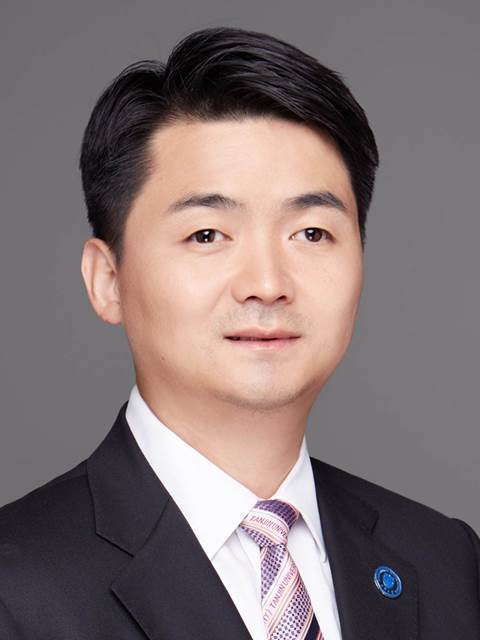 Jinlong Gong, Tianjin University, China
Jinlong Gong, Tianjin University, China
Dr. Jinlong Gong studied chemical engineering and received his B.S. and M.S. degrees from Tianjin University and his Ph.D. from the University of Texas at Austin. Upon the completion of his postdoctoral research at Harvard University, he joined the faculty of chemical engineering at Tianjin University, where he currently holds a Pei Yang Chair Professorship. His research group works on heterogeneous catalysis and kinetics with a focus on catalytic conversions of small molecules, production of hydrogen energy, and syntheses and applications of nanostructured catalytic materials.
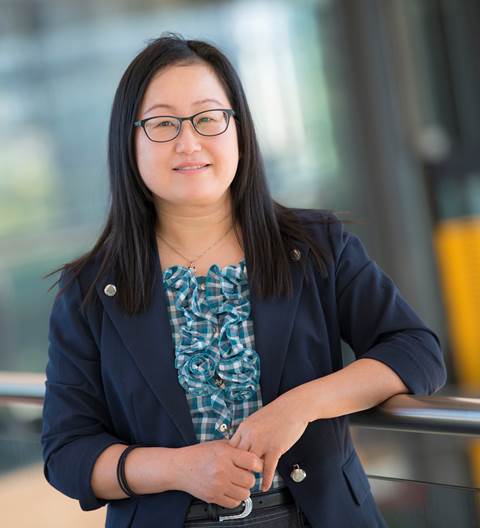 Zaiping Guo, University of Adelaide, Australia
Zaiping Guo, University of Adelaide, Australia
Dr. Zaiping Guo is a Professor and an ARC Australian Laureate Fellow in the School of Chemical Engineering & Advanced Materials at the University of Adelaide. She received her doctorate degree from the University of Wollongong, Australia in 2003, followed by a postdoctoral work at University of Wollongong from 2004-2006. She received successive promotions to Associate Professor in 2010, Professor in 2012 and Distinguished Professor in 2019 at the University of Wollongong. She then joined The University of Adelaide as a Top-talented Professor in March 2021.
The interests of her research team focus on the design and application of electrode materials and electrolyte for energy storage and conversion, including rechargeable batteries, hydrogen storage, and fuel cells. Her field of expertise includes electrochemistry, charge transfer and transport kinetics, electrocatalysis, solid-state chemistry, and materials synthesis and characterization.
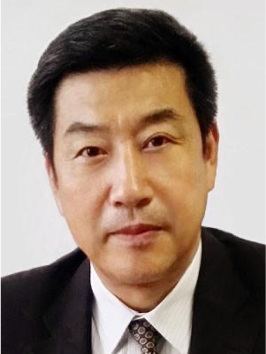 Buxing Han, Institute of Chemistry, CAS, China
Buxing Han, Institute of Chemistry, CAS, China
Dr. Buxing Han is a Professor at the Institute of Chemistry, Chinese Academy of Sciences (CAS), Academician of Chinese Academy of Sciences, Fellow of The World Academy of Sciences (TWAS) for the Advancement of Science in Developing Countries and Fellow of Royal Society of Chemistry. He is also the director of CAS Key Laboratory of Colloid, Interface and Chemical Thermodynamics and of Shanghai Key Laboratory of Green Chemistry and Chemical Processes.
He received B.S. degree in Chemical Engineering at Hebei University of Science and Technology in 1982, M.S. degree in Inorganic Chemistry at Changchun Institute of Applied Chemistry, CAS in 1985, Ph.D. degree in Physical Chemistry at Institute of Chemistry, CAS in 1988, and did postdoctoral research in Chemical Engineering at the University of Saskatchewan, Canada from 1989 to 1991. He was an associate professor at Institute of Chemistry, CAS during 1991-1993, and has been a professor at the Institute since 1993.
His research interests include physicochemical properties of green solvent systems and application of green solvents in green chemistry, especially on transformation of CO2, biomass, and organic wastes into valuable chemicals and fuels. He has published more than 800 papers in peer-reviewed scientific journals, such as Science, Nat. Commun., Sci. Adv., J. Am. Chem. Soc., Angew. Chem. Int. Ed., Chem. Rev., Acc. Chem. Res. He has also published 70 patents and presented more than 200 plenary or invited lectures at different conferences. He has received a number of awards, such as 2nd-Class Award of Chinese Government for Development of Natural Science, Outstanding Science and Technology Achievement Prize of the Chinese Academy of Sciences.
He is the Chairman of Interdivisional Committee on Green Chemistry for Sustainable Development, International Union of Pure and Applied Chemistry (IUPAC), Chief Scientist of China Innovation Think Tank; Chairman of Green Chemistry Division, Chinese Chemical Society; President of Beijing Energy and Environment Society; Former Chairman of Subcommittee on Green Chemistry of IUPAC, former Titular Member of Division III of IUPAC, and former Chairman of Thermodynamics and Thermal Analysis Committee, Chinese Chemical Society. He is the Editor-in-Chief of The Innovation, Associate Editors of Chinese Sci. Bulletin, Acta Physico-Chimica Sinica, Chemical Journal of Chinese Universities, and is serving more than 10 other peer-reviewed scientific journals as Editorial Board Member or Advisory Board Member, such as such as Chem. Sci., ChemSusChem, J. Chem. Thermodyn., Current Opinion in Green and Sustainable Chemistry,Energies, J. Supercritical Fluid, Green Chemical Engineering, Sci. China Chem.
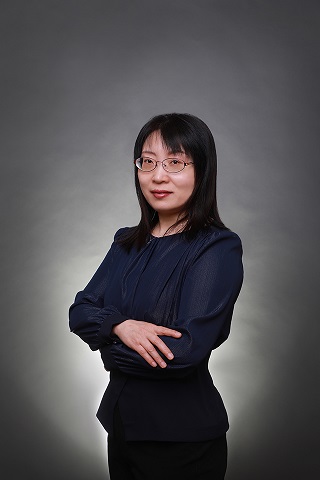 Dr. Lifang Jiao, Nankai University, China
Dr. Lifang Jiao, Nankai University, China
Dr. Lifang Jiao is a full professor at the College of Chemistry, Nankai University, China. She received her Ph.D. in inorganic chemistry from Nankai University in 2005. She was a visiting fellow at the University of Wollongong, Australia from November 2013 to November 2014. In 2021, she was awarded the National Science Fund for Distinguished Young Scholars. She has also received the 18th China Young Women Scientist Award and is the chief of the National Key Research and Development Program of China. Her current research interests are focused on energy storage and conversion of advanced materials (including sodium secondary batteries, dendrite-free sodium metal anodes and sodium-based solid-state electrolytes), and electrocatalytic hydrogen evolution (including proton exchange membrane water electrolysis and hydrogen production coupled with electrochemical oxidation of small molecules). She has co-authored over 300 relevant peer-reviewed publications with an H-index of 73 and over 19,000 citations. She currently sits on the editorial boards of eScience (KeAi) and Chinese Chemical Letters (Elsevier).
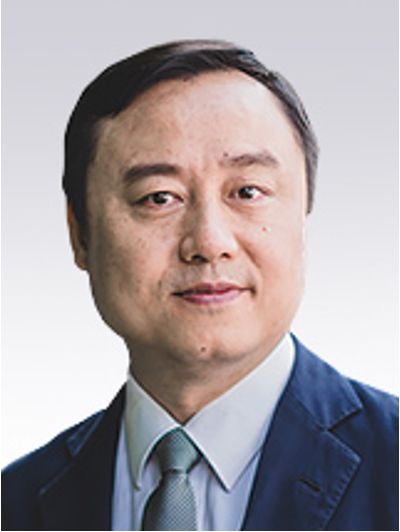 Xiaogang Liu, National University of Singapore, Singapore
Xiaogang Liu, National University of Singapore, Singapore
Dr. Xiaogang Liu received his Ph.D. from Northwestern University, Evanston, USA (2004). After spending two years as a postdoctoral researcher in the Department of Materials Science and Engineering at Massachusetts Institute of Technology, he joined National University of Singapore in 2006 and was promoted to Full Professor in 2017. Among his research interests are the study of energy transfer in lanthanide-doped nanomaterials, the application of optical nanomaterials for neuromodulation and light-field imaging, the development of advanced X-ray scintillators, and the prototyping of electronic tools for assistive technologies.
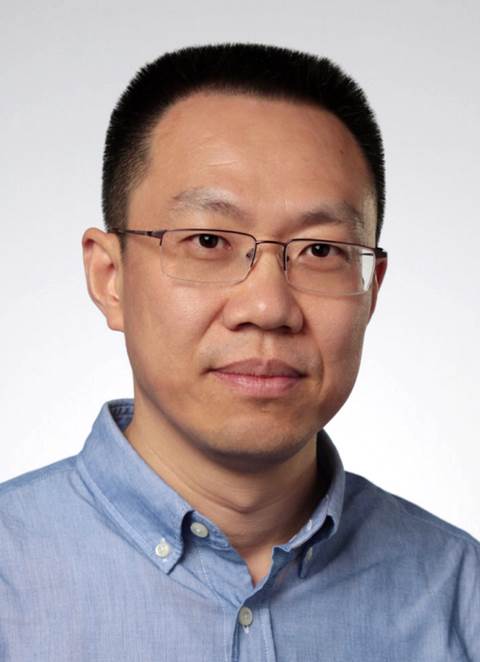 Yi-Tao Long, Nanjing University, China
Yi-Tao Long, Nanjing University, China
Dr. Yi-Tao Long is a Professor of Analytical Chemistry at Nanjing University. He received his B.S. in chemistry at Shandong University in 1989 and obtained his Ph.D. under the supervision of Professor Hongyuan Chen from Nanjing University in 1998. After undertaking two-year postdoctoral studies at Heidelberg University, he worked at the University of Saskatchewan and the University of Alberta over 5 years in Canada. Following one more year of research at UC Berkeley, he started his independent career at the East China University of Science and Technology in 2007 where the concept of single-molecule interface has been developed. His research focuses on the development of new electrochemical measurement methods to reveal the characteristics and dynamics of single entities, which involves the nanopore single molecule electroanalysis, biointerface spectroelectrochemistry and integrated biosensors. As an associate editor for Chemical Science, he expects to see the cutting-edge papers that lead to the frontiers of analytical science and electrochemistry.
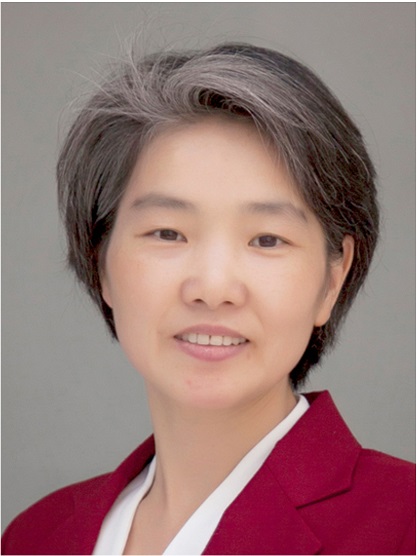 Xiulian Pan, Dalian Institute of Chemical Physics, CAS, China
Xiulian Pan, Dalian Institute of Chemical Physics, CAS, China
Dr. Xiulian Pan has been a Professor at the State Key Laboratory of Catalysis, Dalian Institute of Chemical Physics, Chinese Academy of Sciences since 2009. She completed her postdoctoral research on membrane and membrane catalysis at the Fraunhofer Institute of Interfacial Engineering and Biotechnology, Germany in 2003. She is now leading a research group dedicated to carbon-based energy catalytic conversion, which has recently made significant progress in C1 chemistry, including coal-based syngas conversion, and CH4 activation and conversion to value-added chemicals. She has over 110 peer-reviewed publications and over 90 approved patents.
She has received a number of distinguished awards including the Award for Distinguished Young Scholars from the National Natural Science Foundation of China in 2014, CCS-BASF Youth Innovation Prize 2014, the Young Woman Scientist Award of China 2017 and The First Prize of National Natural Science Award 2020. She serves on a number of advisory boards of scientific journals.
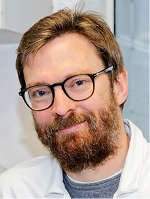 Erwin Reisner, University of Cambridge, United Kingdom
Erwin Reisner, University of Cambridge, United Kingdom
Dr. Erwin Reisner received his education and professional training at the University of Vienna (PhD in 2005), the Massachusetts Institute of Technology (postdoc from 2005-2007) and the University of Oxford (postdoc from 2008-2009). He joined the University of Cambridge as a University Lecturer in the Department of Chemistry in 2010, became a Fellow of St. John’s College in 2011, was appointed to Reader in 2015 and to his current position of Professor of Energy and Sustainability in 2017. He started his independent research programme on artificial photosynthesis (solar fuels) with the support of an EPSRC Career Acceleration Fellowship (2009-2015), which also received substantial early support by the Christian Doppler Laboratory for Sustainable SynGas Chemistry (2012-2019). In 2016, he received a European Research Council (ERC) Consolidator Grant to develop the field of semi-artificial photosynthesis (biohybrid systems for solar fuel synthesis) and has recently been awarded an ERC Advanced Grant (now funded by the UKRI underwrite scheme) on semi-biological domino catalysis for solar chemical production. He is the academic lead (PI) of the Cambridge Circular Plastics Centre (CirPlas; since 2019), where his team develops solar-powered valorisation technologies for the conversion of solid waste streams (biomass and plastics) to fuels and chemicals. He has acted as the academic lead of the UK Solar Fuels Network, which coordinates the national activities in artificial photosynthesis (2017-2021) and is currently a co-director of the Centre for Doctoral Training in Integrated Functional Nano (nanoCDT) in Cambridge as well as a member of the European research consortia ‘Sofia’ and ‘solar2chem'.
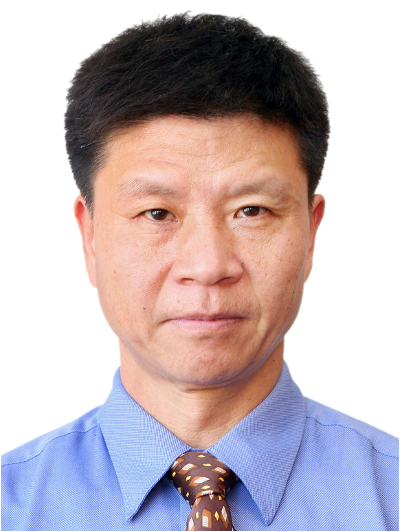 Shi-Gang Sun, Xiamen University, China
Shi-Gang Sun, Xiamen University, China
Dr. Shi-Gang Sun graduated from Xiamen University (BSc 1983), China, and obtained Doctorat d’Etat (Docteur ès Sciences Physiques) from Université Pierre et Marie Curie (Paris VI), France. He worked as a postdoctoral fellow at the Laboratoire d’Electrochimie Interfaciale du CNRS, France. He returned to China by the end of 1987 and was an associate professor and has been a full professor at the Department of Chemistry of Xiamen University since 1991. He has published over 750 papers (42,200 citations, H-index 101), received the “Brian Conway” Prize from the International Society of Electrochemistry (ISE) , “Le prix Franco-Chinois 2014-2015” jointly from Société Chimique de France (SCF) and Chinese Chemical Society (CCS), the State Natural Science Award (2nd Degree) of China, the “Achievement award” from International Automotive Lithium Battery Association, and the “Achievement award in spectroscopy” from Chinese Chemical Society and Chinese Optical Society. He was elected as Fellow of the Royal Society of Chemistry in 2005, Fellow of the ISE in 2007. He now sits on the editorial boards of Journal of Electroanalytical Chemistry, Functional Materials Letters, ACS Energy Letters, Electrochemical Energy Review, National Science Review, Applied Chemistry and Journal of Solid State Electrochemistry and serves as associate editor for Electrochimica Acta, Spectral Analysis and Spectroscopy, Chinese Journal of Chemical Education, Acta Chimica Sinica, and the Editor-in-Chief of Journal of Electrochemistry.
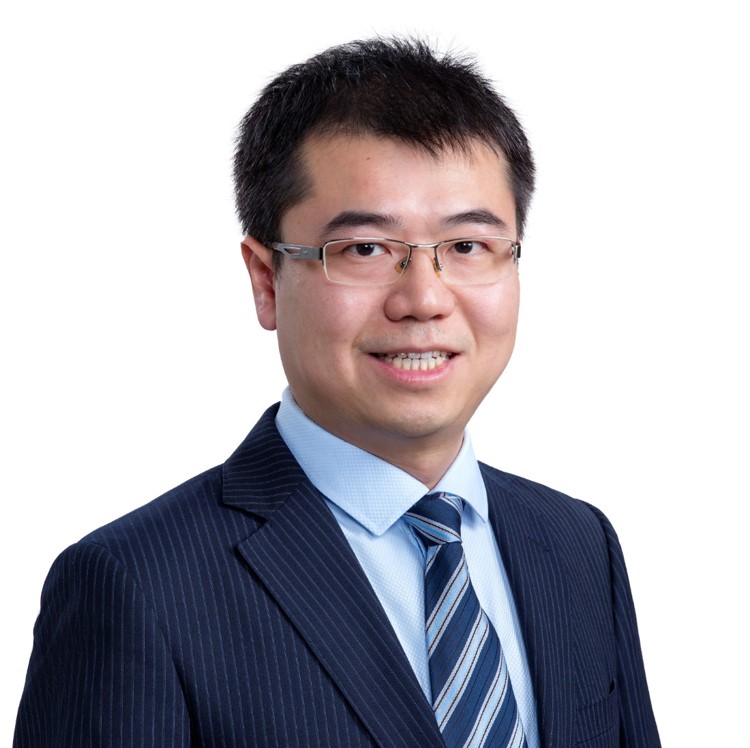 Ning Yan, National University of Singapore, Singapore
Ning Yan, National University of Singapore, Singapore
Dr. Ning Yan is currently the Dean's Chair Associate Professor in the Department of Chemical Engineering at the National University of Singapore (NUS). From 2000 to 2009, he studied at the College of Chemistry and Molecular Engineering, Peking University, under Professor Kou Yuan. With the support of the Marie Curie Scholarship, he then conducted research at the Swiss Federal Institute of Technology in Lausanne, working with Professor Paul Dyson. In 2012, he joined NUS and established the Green Catalysis Laboratory, focusing on the value-added utilization and catalytic research of renewable carbon and nitrogen resources. He has published about 200 papers and has been listed as a highly cited author in chemistry by Clarivate Analytics in 2020 and 2022. He has received numerous honors, including the United Nations Educational, Scientific and Cultural Organization Green Chemistry for Life Young Scientist Grant (2014), the Royal Society of Chemistry's Early Career Award in Environment and Energy (2017), the American Chemical Society's Award in Sustainable Chemistry and Engineering (2019), the National University of Singapore Young Researcher Award (2019), and the Singapore Research Foundation’s Investigatorship Award (2022).
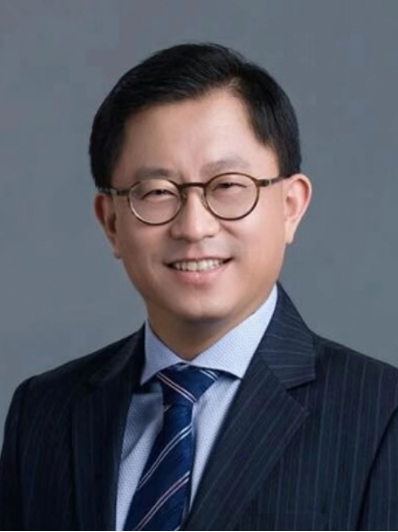 Quan-Hong Yang, Tianjin University, China
Quan-Hong Yang, Tianjin University, China
Dr. Quan-Hong Yang is a Chang Jiang Scholar Chair Professor of School of Chemical Engineering and Technology, Tianjin University and the winner of National Science Fund for Distinguished Young Scholars. He received his BEng from Tianjin University in 1994 and his PhD on new carbon materials from Institute of Coal Chemistry, Chinese Academy of Sciences in 1999. He continued his carbon studies as research fellow in Institute of Metal Research, Chinese Academy of Sciences, CNRS France, Tohoku University and Southampton University. He joined Tianjin University as a full professor in 2006 and was promoted to a chair professor in 2016. His research is totally related to nanocarbons and other low dimensional materials, and their applications in advanced electrochemical energy storage. His recent interests mainly focus on materials design for compact energy storage devices, catalysis in lithium-sulfur batteries, and carbon design for advanced batteries. He has published over 300 peer-reviewed papers with citations over 36,000 times and an H-index of 102. He is a Clarivate Highly Cited Researcher (since 2018) and among Most Cited Chinese Researchers by Elsevier (since 2018). He holds over 40 patents about nanocarbons and batteries. He serves as an associate editor for Energy Storage Materials and sits on the editorial boards of ten journals including Advanced Energy Materials, Carbon and Science China Materials.
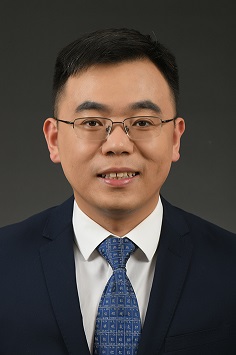 Xiaowei Yang, Shanghai Jiao Tong University, China
Xiaowei Yang, Shanghai Jiao Tong University, China
Dr. Xiaowei Yang completed his Ph.D. studies at Shanghai Jiao Tong University under the supervision of Professors Zi-Feng Ma and Dan Li (Monash University, Australia). His doctoral research focused on graphene-based supercapacitors. He then worked as a postdoctoral research fellow in the group of Prof. Dan Li. In December 2014, he obtained an academic position as the group leader at Tongji University in China. In June 2020, he was appointed full professor at Shanghai Jiao Tong University. His research interests include the interfacial ion transport and divalent-ion battery.
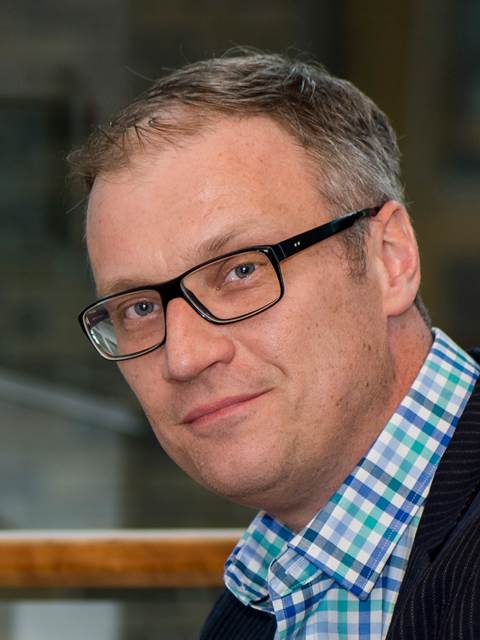 Andrei Yudin, University of Toronto, Canada
Andrei Yudin, University of Toronto, Canada
Dr. Andrei Yudin received his bachelor’s degree in chemistry from Moscow State University in 1992. He then became a doctoral student at the University of Southern California (1992-1996) and later received postdoctoral training at the Scripps Research Institute (1996-1998).
Since 1998, he has been on the chemistry faculty at the University of Toronto. His lab attempts to solve some of the long-standing challenges in chemistry by creating and exploring amphoteric molecules. The structures developed by his group often defy logic because the corresponding molecules feature both nucleophilic and electrophilic nodes of reactivity. Some of the peptide macrocycle and boron technologies that emerged as a result of his lab's research have enabled the discovery of new bioactive molecules and led to the creation of spin-off companies.
He is a Fellow of the Royal Society of Canada and started his position as an associate editor for Chemical Science in December 2018.
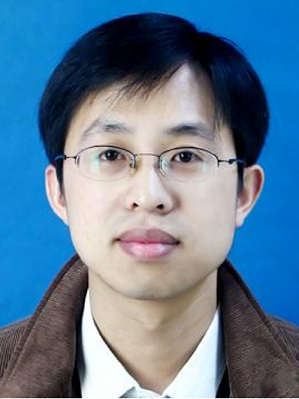 Junwu Zhu, Nanjing University of Science and Technology, China
Junwu Zhu, Nanjing University of Science and Technology, China
Dr. Junwu Zhu is a Professor of Materials Chemistry at Nanjing University of Science and Technology and the assistant principal of this University. He received his Ph.D. in materials chemistry from Nanjing University of Science and Technology (2005) and was a visiting scholar at Nanyang Technological University, Singapore and Monash University, Australia. His research focuses on the synthesis and self-assembly of nanoscale functional materials with rationally designed architectures, and understanding their chemical and physical properties for electrochemical energy storage and conversion devices. He has published ~200 peer-reviewed scientific papers in many prominent scientific journals (~14,000 total citations) including Nature Communication, Advanced Materials, Energy & Environmental Science, etc. He has received several notable awards and honors for young scientists, including National Science Fund for Distinguished Young Scholars of China, the First Prize of Science and Technology Advancement Award of Jiangsu and Youth Changjiang Scholars Program of China.





























